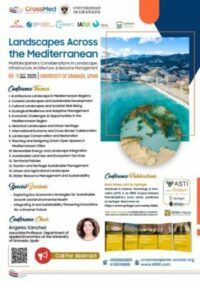Dec
2021
Jan
2022
Urban centers are complex sociotechnical systems because they comprise various components, including the built and natural environment, communities, urban infrastructure systems, and diverse economics and social activities, all of which depend on each other. Accordingly, cross-sectional issues directly affect the vulnerability of the urban population, land use, and building safety, detrimentally affecting not only national economies and infrastructure, but also the community itself. Apart from the aforementioned urban management problems, other issues such as air pollution, shortages of water supply, and power generation, public utilities and social conflicts are posing both temporary and permanent threats to the physical and psychological safety of urban communities, producing disaster risks. These risks accumulate, making the reduction and management of disaster risk critical for urban communities. The ultimate goal of urban disaster risk reduction and management is to manage and improve the capacity of urban cities to reduce disaster risk and its impact on sustainable development, while improving the quality of life of members of the urban community. The success of urban disaster risk reduction and management depends on initiatives that are undertaken at the level of the whole community, the region or the nation, with the participation of all stakeholders. This Special Issue solicits original papers, review articles, case studies, technical notes, and new urban technology analyses that discuss or present research on urban disaster risk reduction and management. It will provide an intellectual platform that allows researchers and practitioners to share their knowledge, experience, and innovative approaches and solutions to any problems in the field.
Topics that are anticipated to be covered include but are not limited to the following: Analyses of the failure modes of urban disasters and effects of failures on sustainable development; Community resilience; Critical success factors and risk allocation for urban disaster management; Disaster management for sustainable development; Engineering failure analysis and urban disaster management; Geo-spatial information analysis about urban communities; Managing hazards; Mega-scale disaster study; Risk management and evaluation; Soft computing for risk management; The protection of critical infrastructure for urban systems; The use of machine learning to predict urban disasters; Urban disaster risk reduction: strategies and techniques; Urban disaster vulnerability assessment; Urban system resiliency; Using multiple-criteria decision-making (MCDM) for risk assessmen.
Urban Disaster Risk Reduction and Management
Urban centers are complex sociotechnical systems because they comprise various components, including the built and natural environment, communities, urban infrastructure systems, and diverse economics and social activities, all of which depend on each other. Accordingly, cross-sectional issues directly affect the vulnerability of the urban population, land use, and building safety, detrimentally affecting not only national economies and infrastructure, but also the community itself. Apart from the aforementioned urban management problems, other issues such as air pollution, shortages of water supply, and power generation, public utilities and social conflicts are posing both temporary and permanent threats to the physical and psychological safety of urban communities, producing disaster risks. These risks accumulate, making the reduction and management of disaster risk critical for urban communities. The ultimate goal of urban disaster risk reduction and management is to manage and improve the capacity of urban cities to reduce disaster risk and its impact on sustainable development, while improving the quality of life of members of the urban community. The success of urban disaster risk reduction and management depends on initiatives that are undertaken at the level of the whole community, the region or the nation, with the participation of all stakeholders. This Special Issue solicits original papers, review articles, case studies, technical notes, and new urban technology analyses that discuss or present research on urban disaster risk reduction and management. It will provide an intellectual platform that allows researchers and practitioners to share their knowledge, experience, and innovative approaches and solutions to any problems in the field.
Topics that are anticipated to be covered include but are not limited to the following: Analyses of the failure modes of urban disasters and effects of failures on sustainable development; Community resilience; Critical success factors and risk allocation for urban disaster management; Disaster management for sustainable development; Engineering failure analysis and urban disaster management; Geo-spatial information analysis about urban communities; Managing hazards; Mega-scale disaster study; Risk management and evaluation; Soft computing for risk management; The protection of critical infrastructure for urban systems; The use of machine learning to predict urban disasters; Urban disaster risk reduction: strategies and techniques; Urban disaster vulnerability assessment; Urban system resiliency; Using multiple-criteria decision-making (MCDM) for risk assessmen.
Clockss (Digital Archive), e-Helvetica (Swiss National Library Digital Archive), Google Scholar, EBSCOhost (EBSCO Publishing).
Info at: www.mdpi.com/journal/civileng/apc
Guest Editors
Prof. Dr. Jui-Sheng (Rayson) Chou
Prof. Dr. Chun-Nen Huang
Prof. Dr. James J.H. Liou
Dr. Citra S. Ongkowijoyo










